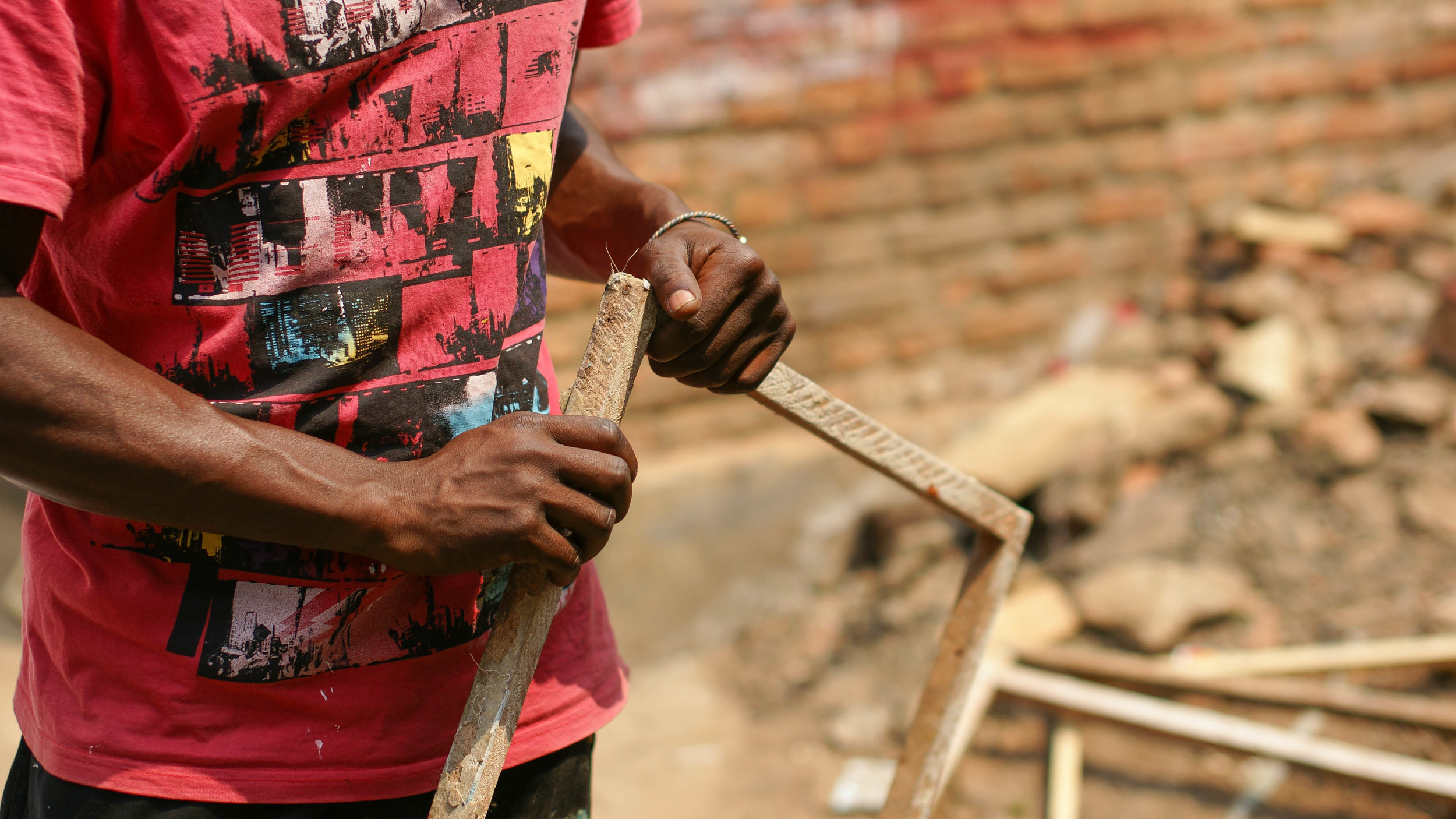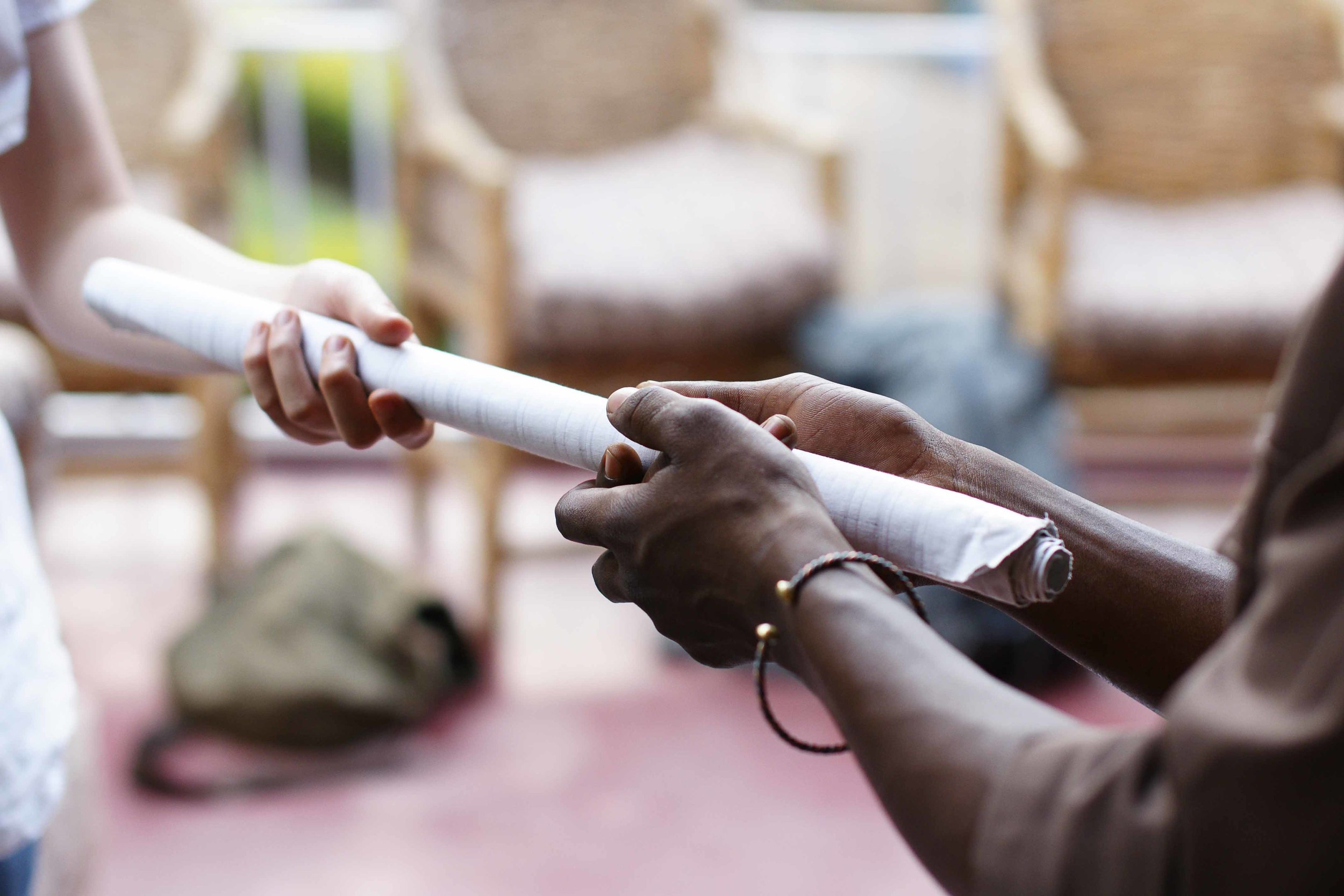"When Winston Churchill was prime minister and he was told that there were going to have to be major cuts in arts and culture because of the mounting costs of world war II, he responded with a simple reply: 'Then what are we fighting for'?"
This quote is actually fictitious in its origins, but who cares.
The 1994 Rwandan genocide resulted in the deaths of more than 800,000 people (or 20% of the population of Rwanda at the time). With wounds like this, art can and does heal.
Enter Kibe, a man of both eclectic talent and location. The son of a Congolese father and Rwandan mother, Kibe was forced to flee his home of Kigali when the genocide started. His shelter in the Congo was short lived, when civil war forced him to Juba. Talk about an inadvertent affinity for conflict.
He's now in his element with a cigarette between his fingers and a swath of canvases at his feet. Having returned to his home of Kigali, he works with kids who were orphaned by the genocide. Together, mentor and protege, they produce great art. Their studio still wears the scars of the past, but the art moves them forward.
The days are spent laughing and creating. Almost by accident, they'e created a true, uncontrived artist collective.
Bullet holes serve as a poignant reminder to a dark but recent past. "There were bodies just lying in the street, blood everywhere," says Kibe.




